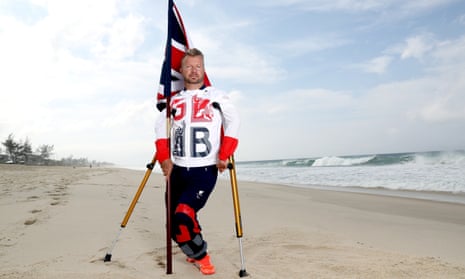This week, we are once again invited to meet The Superhumans. When the Paralympics open in Rio on Wednesday, they will surely once again help to challenge the stigma that people with disabilities face worldwide and that can bar them from education, jobs, a decent standard of living and even a family or social life.
For many, London 2012 marked the first time that the Games were treated not as an afterthought but an event in their own right (they are so competitive, incidentally, that participants are willing to dope or to manoeuvre their way to advantage). As important as London’s record 2.5m ticket sales and the cheering crowds was Channel 4’s coverage, the tone set by those irreverent posters at the end of the Olympics (“Thanks for the warm-up”) and a trailer highlighting the sheer thrill of the sport.
The focus was not on the athletes’ disabilities, but their abilities; instead of poring over their back stories, it celebrated their extraordinary prowess. The broadcaster’s new trailer is another beautifully produced, attitude-shifting work, this time including people in daily life as well as the sporting arena, set to the song Yes I Can. Perhaps inspired by Channel 4’s success, NBC will show 60 hours of coverage in the US this time – a fraction of its Olympics broadcasting, but a dramatic improvement from the 5.5 hours last time round.
That is the good news. But there is not much of it. There are fears that overall, Rio is a step back, as a result of financial cuts, downgraded facilities and shortages of volunteers. The International Paralympics Committee chief Sir Philip Craven warned last month that it had not faced such a crisis in the 56 years of the Games. Delays in paying travel grants have jeopardised the prospects of some competitors making it to Rio, though the IPC hopes to have solved those problems and has said that – after embarrassingly poor initial ticket sales – it hopes that the event will sell out.
Before Britain pats itself on the back too quickly, it should acknowledge problems closer to home. Disabled people are still treated as second-class citizens, as the equalities watchdog noted recently, are targeted in hate crimes, and have been hit perhaps hardest by the age of austerity, with a direct impact on Paralympians: one hopeful pulled out of trials because of cuts to disability support; another has lost her car. The campaign Disabled People Against Cuts is launching a Rights Not Games week of action, pointing out that people are losing not just access to sport and recreation, but to education, income and independent living.
These issues may seem a far cry from the celebrations in Rio. But some see a thread running between them. It is meaningless to talk of encouragement and personal responsibility if you ignore barriers such as prejudiced recruiters (or, indeed, if you hold benefit entitlement tests at centres with no disabled access). And it is possible to welcome the focus on the achievements of a group which is too often written off – but to fear that the message “Yes I can” drifts too easily towards “No such thing as can’t!”
By definition, Paralympians’ achievements are no guide to the abilities of other people with disabilities – just as, while Olympians show what able-bodied people can achieve at their physical peak, they are by their nature atypical. Those who know that “No, they cannot”, also deserve respect. Research by the English Federation of Disability Sport shows understandable discomfort with words such as “superhero”. Positive stereotypes are still stereotypes; they can make others less accepting of impairments. Real progress will come when those with disabilities are seen neither as second-class citizens nor as superhuman symbols of virtue – with bodies that are “either an object of pity or valorized as ‘super’ in order to be acceptable”, in the words of one commentator – but as fellow humans – who, like everybody else, should get support when they need it.
